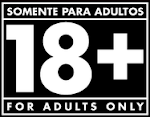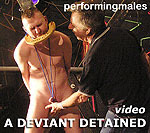The hunting expedition was arranged for early afternoon.
I had not packed very well for this trip so I was wearing my heavy hiking boots, a pair of jeans and a flower-patterned short-sleeved shirt. Not great jungle-wear I know, but the best I had to hand.
The village was just a couple of minutes' stroll from where we had slung our hammocks and even that short walk was enough to work up a heavy sweat. But it was only once I had entered the village that I realised just how overdressed I was.
We were filming with an Amazonian tribe called the Awa. We were here to show how the global demand for Brazil's resources, in particular from China, is driving deforestation.
Until very recently the Awa people were completely isolated. Indeed, some of the villagers here were contacted for the first time just 12 years ago, yet now their land is the most degraded of any indigenous tribe in the Amazon.
The Awa are nomadic hunter-gatherers and we wanted to film a hunt to illustrate how, as the loggers and farmers encroach on their land, it is increasingly difficult for them to live their traditional lifestyle. Indeed, they only live in a village because game is now so scarce.
During the first day we had spent with them, the Awa had worn ragged T-shirts and shorts or skirts. But walking into the village it became abundantly clear that when it comes to hunting, some traditions remain strong.
The Awa hunters were completely naked except for a piece of string decorated with bright bird feathers tied to the end of their penises.
They looked at me in my sweaty shirt and jeans and laughed. One motioned towards my groin and gestured as if he were tying a knot. The others laughed even harder. Clearly, they thought I should dress more appropriately.
I looked over to the director, Steve. He had a mischievous grin on his face. It was clear that he thought I should too.
"The whole idea of this programme is that you get involved," he reminded me, with a laugh.
Now I appreciate that it is the director's job to make the most compelling film he can, but full nudity was, I thought, going a bit far. After all, a reporter must keep his dignity.
"I am not wearing one of those and that's the end of it," I said. I turned, perhaps a trifle petulantly, and stomped off into the forest behind one of the hunters.
To be fair, Steve seemed resigned to my decision.
We filmed a wonderful sequence of the Awa hunters and their families setting up a little camp in the forest.
They built a small fire and then roasted a tortoise and a porcupine that they had caught on it.
The hunters told me how the loggers were driving the animals out of the forest and explained that they targeted the same trees that the community relies on for fruits and berries.
"This is our land and if they cut our trees we cannot survive," they told me, beating their chests in emphasis.
After a couple of hours Steve said we had got enough and told David, the cameraman, to stop filming.
We then began the trek back to the village. By the time we reached the little river that runs through the Awa territory we were all, hunters and BBC crew alike, drenched with sweat.
The hunters indicated that they were about to take a dip.
Now there is nothing I love more than swimming in the open air and I was hot and uncomfortable and minded to join our hosts.
I checked the coast was clear. David was not even carrying the video camera and Steve was nowhere to be seen. I quickly stripped off and dived in too.
The Awa seemed delighted that at last I was surrendering to the spirit of the hunt.
Then I noticed one of the young hunters on the bank brandishing a piece of string. I guessed what was coming next.
He dived into the water beside me, string in hand. The other hunters were doubled up with glee. I had a choice: fight him off or surrender to the joke.
I tried - rather ineffectually - to push him away, but he was insistent. They had invited us into their village and let us film, I reasoned, and they clearly thought the young man's antics were hilarious. What is more, string is the Awa's traditional hunting wear.
As the man, erm, "dressed" me, I looked over to the river bank.
Steve had, as if by magic, materialised, and David was pointing the still camera he carried with him at me. I remembered it also shot video.
"You won't use that in the film will you?" I asked plaintively from the water.
"Don't worry," said Steve with a smirk, "it is a very wide shot. You look very small in frame." He and David collapsed with laughter.
So much for the dignity of the reporter.
http://news.bbc.co.uk/1/hi/programmes/from_our_own_correspondent/9413908.stm
Justin Rowlatt was taken by surprise when he stripped off for a swim


































1 comment:
perhaps, instead of saying no and stomping off,you should have said, OK but only if the others wear one too, on camera!!
you can't tell from the pics but does being cut or uncut make a difference?
Post a Comment